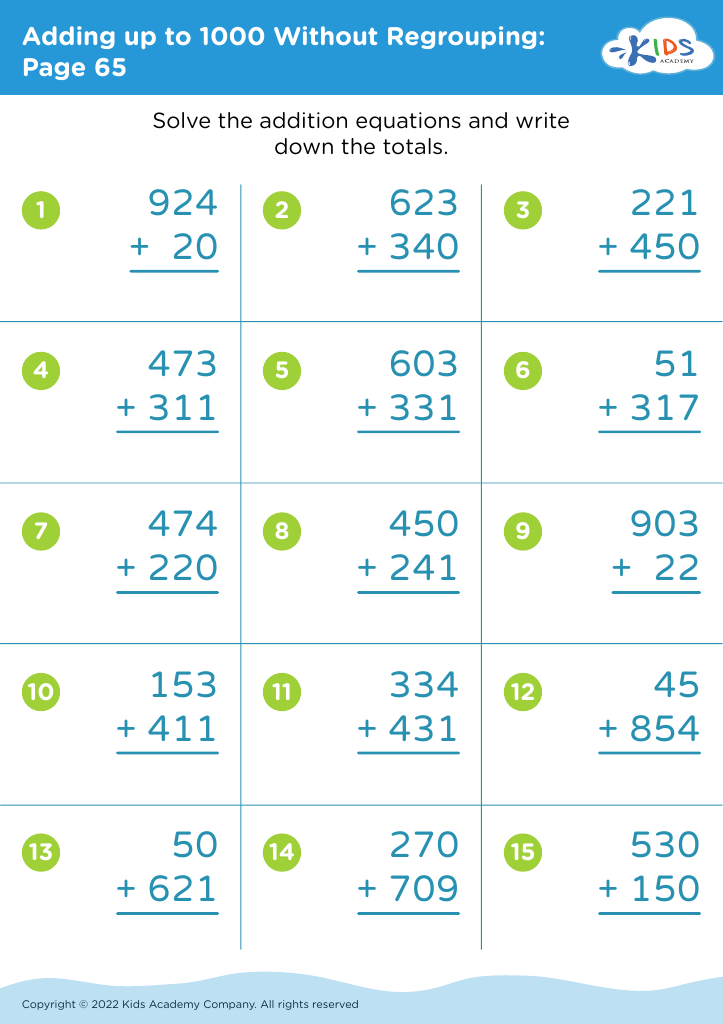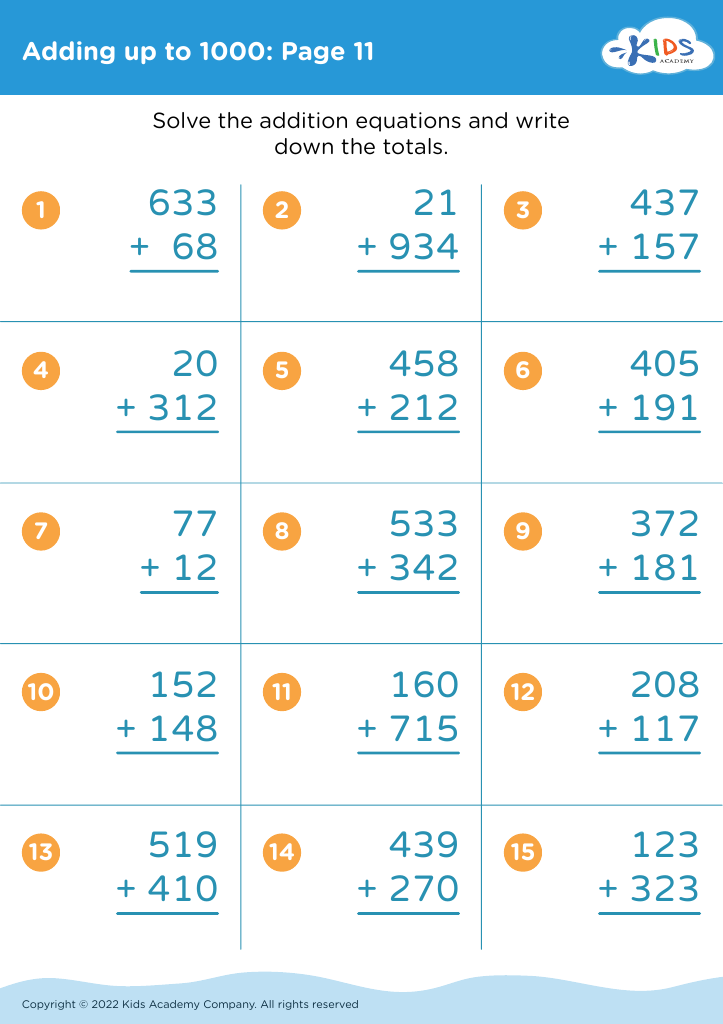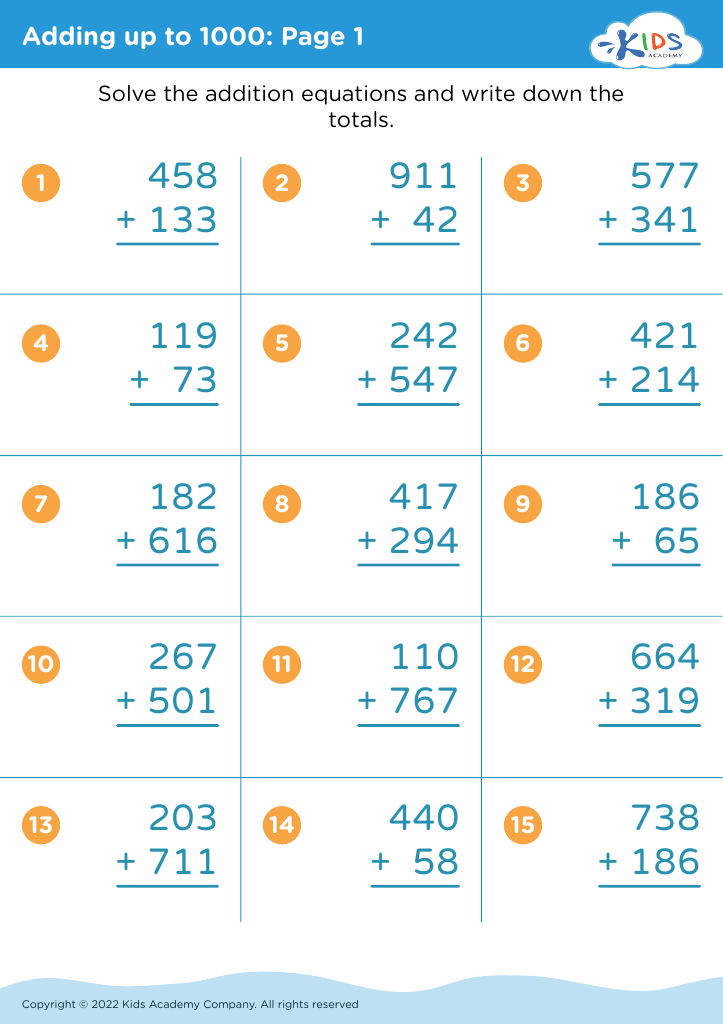Improve math skills Adding up to 1000 Worksheets for Ages 4-8
6 filtered results
-
From - To
Boost your child's math proficiency with our "Adding up to 1000 Worksheets for Ages 4-8"! These carefully designed worksheets provide a fun and engaging way for young learners to enhance their addition skills. Perfect for kids in early elementary grades, each worksheet encourages practice with adding numbers up to 1000, fostering better number sense and confidence in mathematics. Tailored to suit different learning levels, our printable resources aim to make math enjoyable and accessible for children ages 4 to 8. Help your child build a strong math foundation and improve their skills with our interactive worksheets!
Developing strong math skills, such as adding up to 1000, is crucial for children aged 4-8 as it lays the foundation for future academic success and builds essential cognitive abilities. At this age, children’s brains are highly receptive to new information, and mastering basic arithmetic can boost their confidence and curiosity in learning more complex math concepts.
First, proficiency in addition fosters logical thinking and problem-solving skills. Children learn to analyze problems, break them into manageable parts, and use systematic steps to reach a solution. These cognitive processes are transferable to other academic areas and real-life situations.
Second, understanding addition makes other math tasks easier. Basic arithmetic skills are foundational for learning more complex topics like multiplication, division, and fractions. A firm grasp of these skills in early years ensures smoother academic progression and more advanced mathematical success.
Third, math skills are intertwined with everyday activities. From understanding time and money to following recipes and playing games, simple arithmetic is everywhere. Helping children become comfortable with basic math empowers them to navigate daily tasks independently and confidently.
Finally, practicing addition with a focus up to 1000 helps improve attention to detail and enhances memory. Teachers and parents thus play an essential role in fostering these vital skills, ensuring children have a strong academic and practical foundation.

















